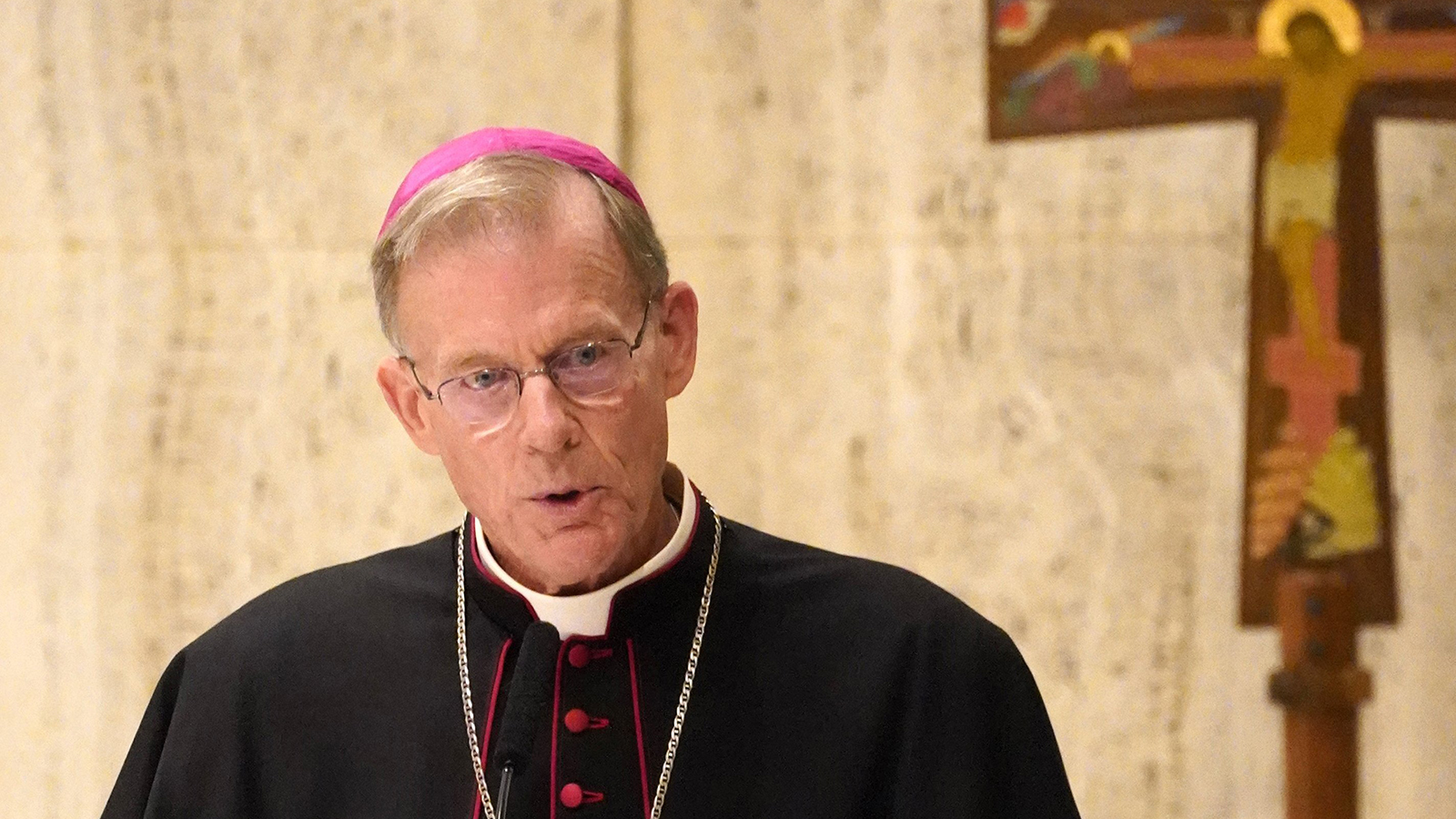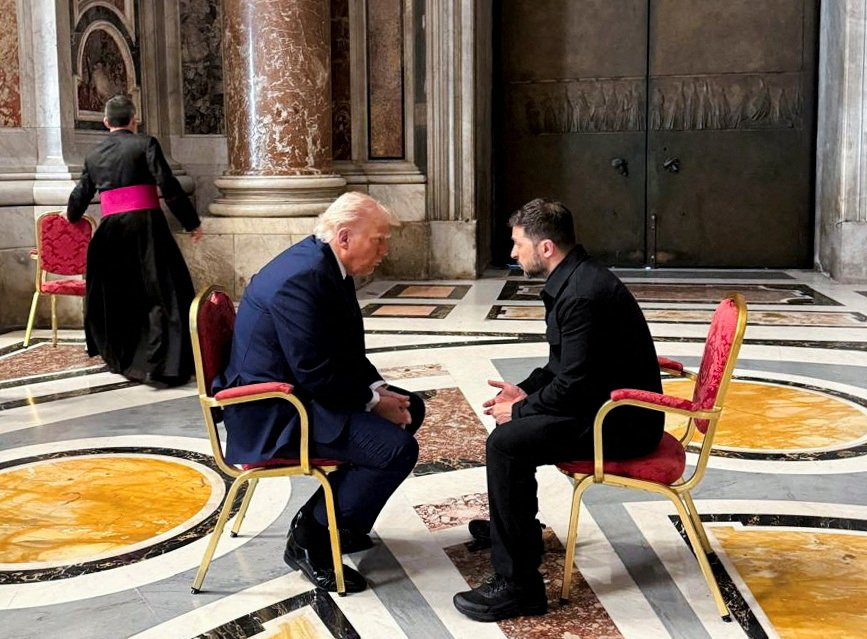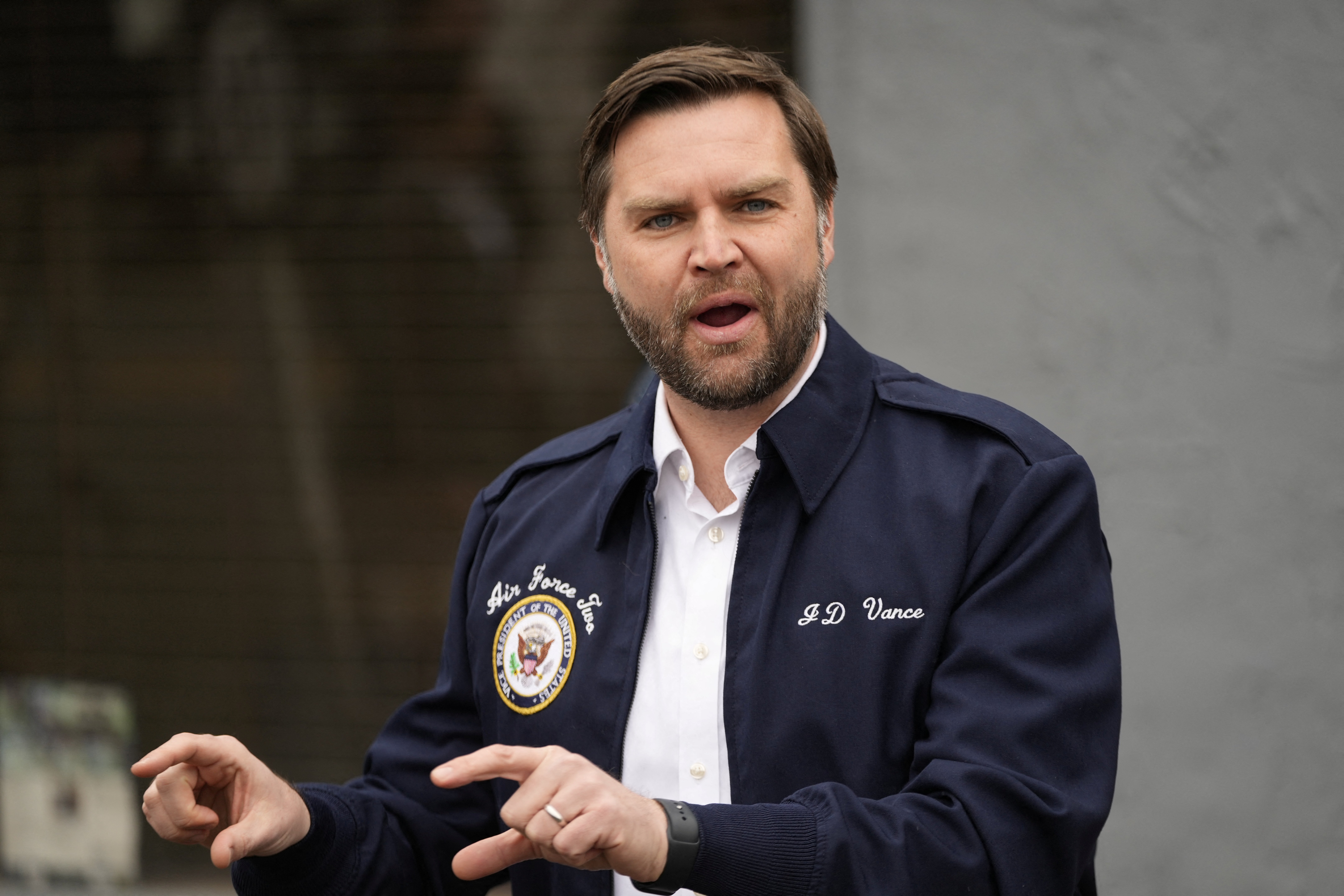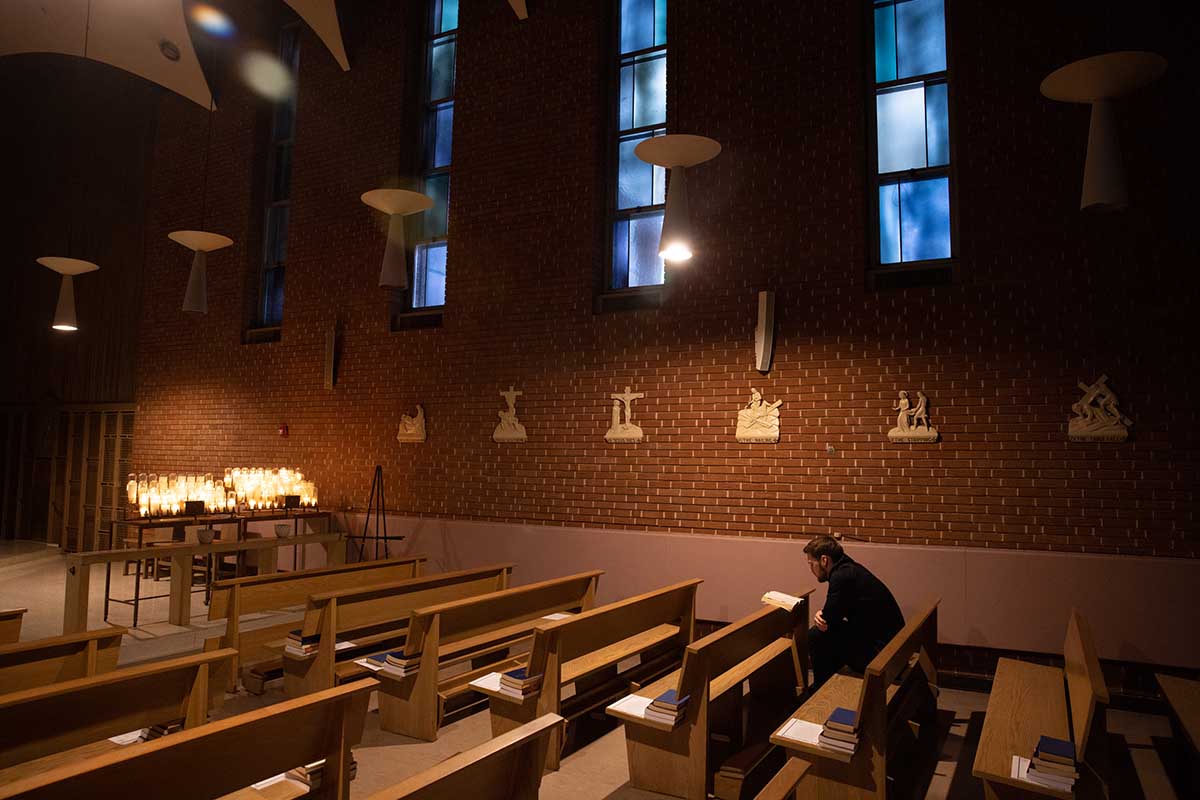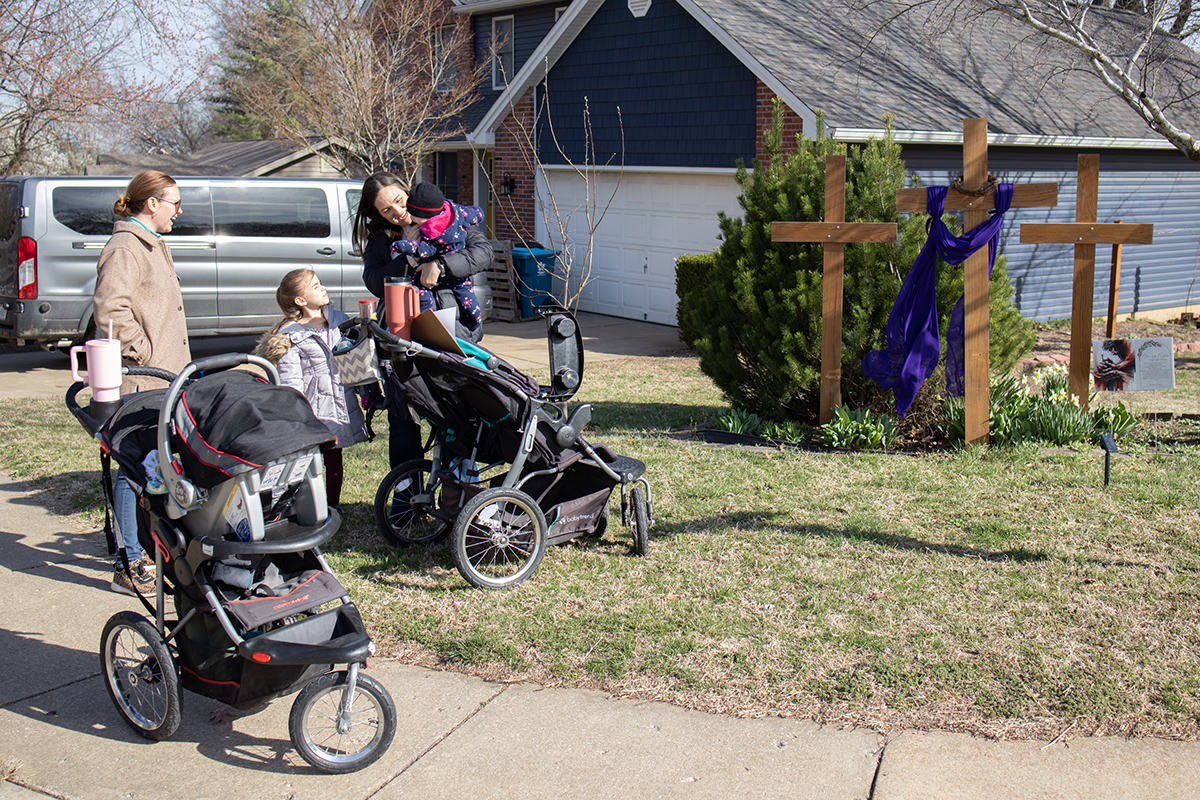God’s presence, respect for others help us rise above political attacks

God’s presence, love help us realize the priorities in our lives
The election is over, and we’re looking for ways to recover from the divisiveness that goes with choosing our political leaders amid the name-calling and twisted facts in in all levels of campaign ads and over social media.
For some, the recovery won’t come easy, especially in the presidential race, but we have our Catholic faith to guide us and show us what’s really important.
Archbishop Mitchell Rozanski, at an interfaith prayer service for unity and peace on Nov. 4, remarked that society is polarized over racial and political issues. “With so much upheaval, it is time to come together as we turn to God’s eternal, unchanging love to realize the priorities in our lives and as we pray for the unity for which we yearn as the human race,” Archbishop Rozanski said.
He appreciated the willingness of the interfaith community to come together to show solidarity and pray for the city, state, nation and world. “As we unite in prayer, uncertain of our immediate future, we rely on the steadfastness of God’s presence, now and forever,” he said.
Archbishop Rozanski closed the service by praying for God’s presence in troubled times so “that we need not respond in fear, but with the love you pour on us abundantly.”
Prior to the Nov. 3 election, Archbishop Rozanski wrote in his column in the Review that no matter how the election turns out, God wins. Everything but God “wears out sooner or later and is bound to disappoint us. Election week is an important time to remember that,” he wrote.
“With so much upheaval, it is time to come together as we turn to God’s eternal, unchanging love to realize the priorities in our lives and as we pray for the unity for which we yearn as the human race.”
‘That’s what’s missing’
Father Matthew Baugh of the Catholic Studies Center at Saint Louis University, said a starting point is to be aware that close elections can be a sign of a healthy political system and that landslides are unusual.
Catholics must guard against reading too much into a close division, “where someone who votes for a different party from myself becomes my enemy,” said Father Baugh, who taught political science and theology at Spring Hill College in Mobile, Alabama, from 2013-16.
Father Baugh referred to Pope Francis’ new encyclical “Fratelli Tutti” which emphasizes that politics is vital and must be infused with friendship. “That’s what’s missing in politics now,” Father Baugh said. “Our politics so easily results in this take-no-prisoners, one-or-the-other attitude. If you can approach the political realm as a place in which social friendship is at least a value you’re working toward, all of a sudden it becomes a noble enterprise and doesn’t result in these forces of bitter-bitter mutual hatred which is always dangerous.”
Pope Francis suggests using the words “political charity” and “political love” in seeking a renewed appreciation of politics.
Father Baugh said civility ends when Catholics let politics become an idol, when “it becomes my principle identity and I just kind of attach ‘Catholic’ onto that. I’m a member of this party first and then I’m also a Catholic.”
It’s important to take others’ opinions seriously, he said. “We start with, ‘I can and I must respect my fellow citizens’ and find ways to communicate with them, talk with them and find out what’s important to them and not just talk to my group and listen to my sources of media. We have to be a little bit more bold, more courageous, and Catholics have the wherewithal to do that.”
“We start with, ‘I can and I must respect my fellow citizens’ and find ways to communicate with them, talk with them and find out what’s important to them and not just talk to my group and listen to my sources of media. We have to be a little bit more bold, more courageous, and Catholics have the wherewithal to do that.”
Cooperating across the divide
It relates to the U.S. Catholic bishops’ teachings to form our consciences with the tradition of the Church, he said. “The totality of the Catholic vision is not captured well by either of the two parties. We’re always going to be a little bit politically homeless in that sense. It gives us a little distance to hold each party to a better standard that the Church can help us understand.”
He’s optimistic, proclaiming that “there’s an opportunity in this election for once again trying to cooperate across the party divide.”
The next president will be successful only if he can find a way to promote policy initiatives that attract broad support across parties, the Jesuit priest said. “I see that as a positive thing. That’s one of the things we’re going to have to do again. It’s been done before, where party cooperation is prominent.”
Catholics need to hold politicians to that concept of cooperation, Father Baugh said, and refuse to be associated with one or the other extremes of the parties which don’t reflect the Catholic vision, which crosses party lines.
A Christ-like manner
Msgr. Michael Witt, professor of Church history at Kenrick-Glennon Seminary and pastor of All Saints Parish in University City, is the author of a four-volume history of the Archdiocese of St. Louis. He said the nation has risen above many divisive times in the past and will again.
Msgr. Witt refers to Archbishop Rozanski’s words before the election in calling people to look past their political persuasions and look at each other through the eyes of Christ.
“It reminded me so much of what Archbishop (Peter) Kenrick wrote in 1860,” Msgr. Witt said. “This was right after the southern secessions and St. Louis was torn apart. He wrote a pastoral letter that was read in all the churches in which he called for calm, called for people to look at each other in a Christ-like manner, exactly what Archbishop Rozanski said. So, I think we have good experiences in some very rough times. We’ll get through this.”
Tyler McClay, executive director of the Missouri Catholic Conference, said politeness and courtesy are important, though it’s not often associated with politics today. On a podcast, MCC from the Capitol, an episode on civility in an era of outrage, he touted the U.S. bishops’ campaign called “Civilize It: Dignity Beyond the Debate.” It recognizes the human dignity of those with whom we disagree, the need to treat others with respect and rise above attacks. It also asks people to root their political viewpoints in the Gospel and a well-formed conscience, recognizing others’ best intention, striving to understand rather than to be understood.
Advent, a season of hope, has something in common with the good found in politics: “Good politics combines love with hope and with confidence in the reserves of goodness present in human hearts. Indeed, authentic political life, built upon respect for law and frank dialogue between individuals, is constantly renewed whenever there is a realization that every woman and man, and every new generation, brings the promise of new relational, intellectual, cultural and spiritual energies.”
>> A spirit of unity
Archbishop José H. Gomez of Los Angeles, who is president of the U.S. Conference of Catholic Bishops, issued a statement on the 2020 presidential election asking the nation’s leaders to come together in a spirit of national unity and to commit themselves to dialogue and compromise for the common good.
“As Catholics and Americans, our priorities and mission are clear. We are here to follow Jesus Christ, to bear witness to His love in our lives, and to build His Kingdom on earth,” Archbishop Gomez stated.
Catholics “have a special duty to be peacemakers, to promote fraternity and mutual trust, and to pray for a renewed spirit of true patriotism in our country. Democracy requires that all of us conduct ourselves as people of virtue and self-discipline. It requires that we respect the free expression of opinions and that we treat one another with charity and civility, even as we might disagree deeply in our debates on matters of law and public policy,” the USCCB president said.
In dealing with contentious current events, seeking sources of pain and comfort are key
Catholic Renewal Center offers healing ministry, among other ministries
BY JENNIFER BRINKER
jbrinker@archstl.org
twitter: @jenniferbrinker

As we face current events rife with much contention, such as a presidential election and the health pandemic, we are encouraged to find personal pathways toward healing, said Jane Guenther, director of the archdiocesan Catholic Renewal Center.
Guenther noted that we can find healing through being attentive to the root of our own sorrows and ultimately in seeking a greater bond with the Lord — who should be at the center of our lives.
Using the analogy of an estuary — the place where fresh and salt water meet, but have difficulty mixing — we must look internally at the place where pain and comfort meet, Guenther said. As a longtime spiritual director, Guenther said that some of her directees who are upset over current events are often dealing with unhealed hurts from the past.
“People want to avoid pain, and because of their victimhood don’t want to embrace comfort,” she said. “I see people who are irate and riled up, and I tell them, we’re going to take a step back, because this event should not have that much power over you. The issue is where you have incurred a hurt in your own life and this (current event) is exacerbating it. So let’s go to the place of the initial hurt and seek healing.”
Spiritual directors and trained healing ministers, both of whom are offered through the Catholic Renewal Center, can guide a person in helping them to see where the Lord is revealing those sources of hurt. “The Lord will take them there, and when it is brought to the surface, God can heal it.”
Once the source of pain is identified, Guenther encouraged seeking comfort through our relationship with Christ. That can be accomplished through immersing ourselves in prayer, through His Word in Sacred Scripture, and seeking bonds with our faith community.
“We must find the comfort that the Lord has for us, because that is the deepest place of healing,” she said.
Healing is a process that does not take place overnight, Guenther stressed. “People need to be patient with themselves and with others,” she said.
To learn more about the ministries of the archdiocesan Catholic Renewal Center, visit www.archstl.org/catholic-renewal-center or call (314) 792-7734.
>> Post-election prayer
O God of Healing,
We are called to wholeness,
We are called to community,
We are called to restore and renew.
To the darkness of division,
We choose to respond with light,
To the despair of violence,
We choose to respond with peace,
Trusting in Your light and Your peace
To open a way forward.
O God of Healing,
Help us listen and learn,
Present to the sorrows we all bear.
Help us reflect on your teaching
As we seek new beginnings.
Help us to act with the realization
We are all your children,
We are sisters and brothers,
Connected with sacred bonds.
God of Healing,
Hear our prayer for wholeness,
For community, for restorative peace,
And for the renewal of our nation.
In Christ’s name, hear our prayer.
Amen
Jane Deren, Ph.D.
Copyright © 2020, Education for Justice, a project of the Ignatian Solidarity Network
The election is over, and we’re looking for ways to recover from the divisiveness that goes with choosing our political leaders amid the name-calling and twisted facts in in all … God’s presence, respect for others help us rise above political attacks
Subscribe to Read All St. Louis Review Stories
All readers receive 5 stories to read free per month. After that, readers will need to be logged in.
If you are currently receive the St. Louis Review at your home or office, please send your name and address (and subscriber id if you know it) to subscriptions@stlouisreview.com to get your login information.
If you are not currently a subscriber to the St. Louis Review, please contact subscriptions@stlouisreview.com for information on how to subscribe.

